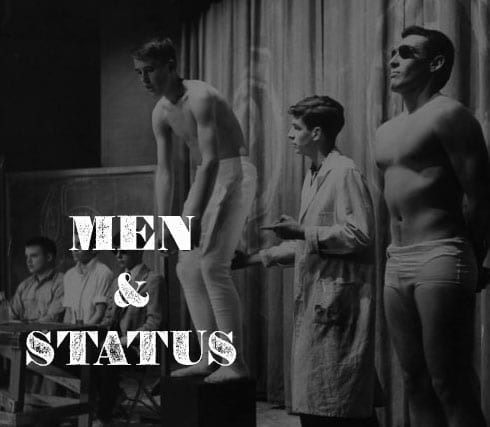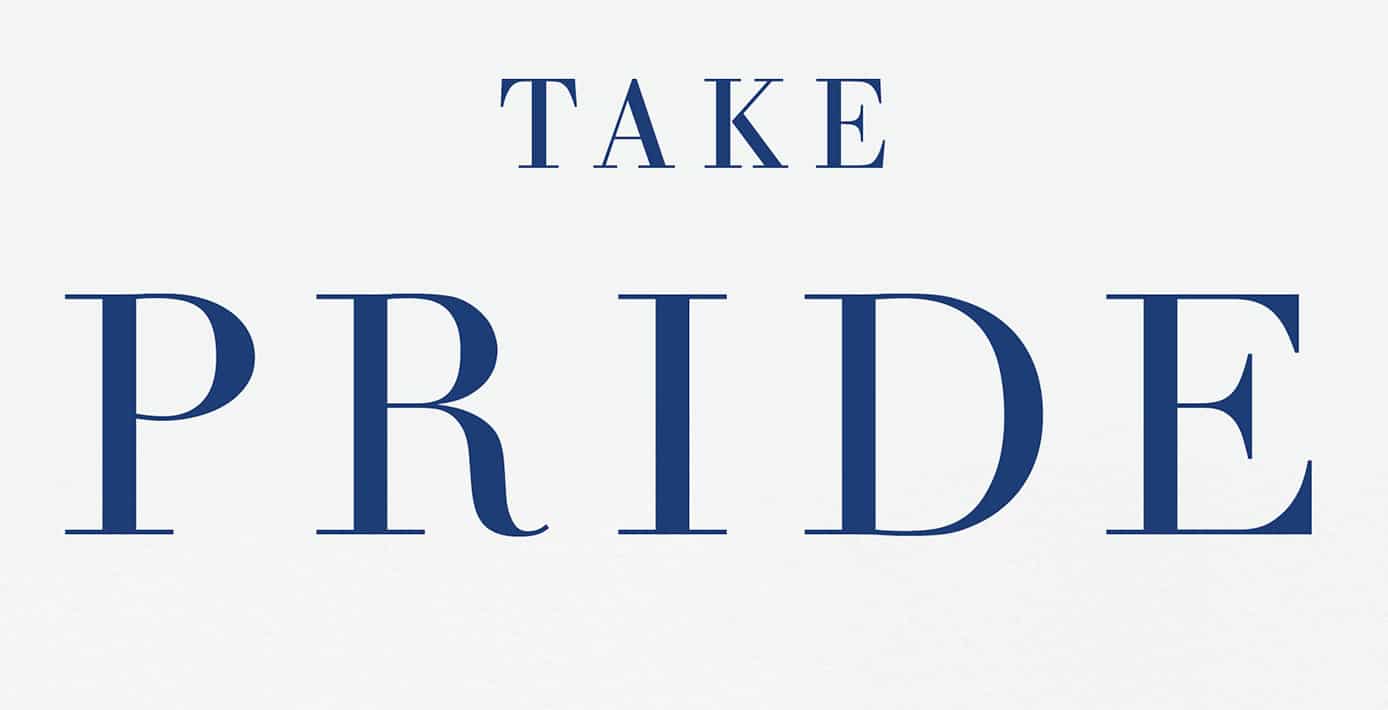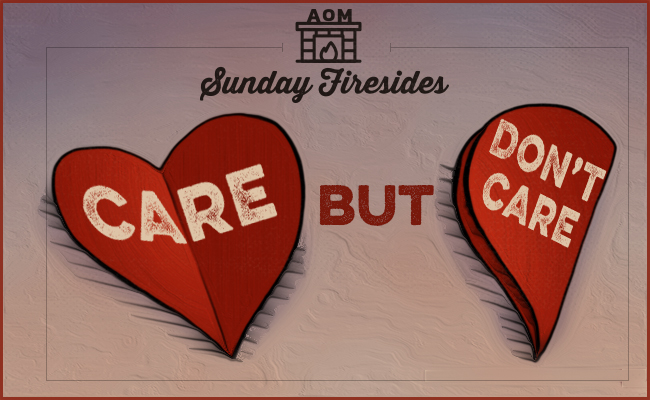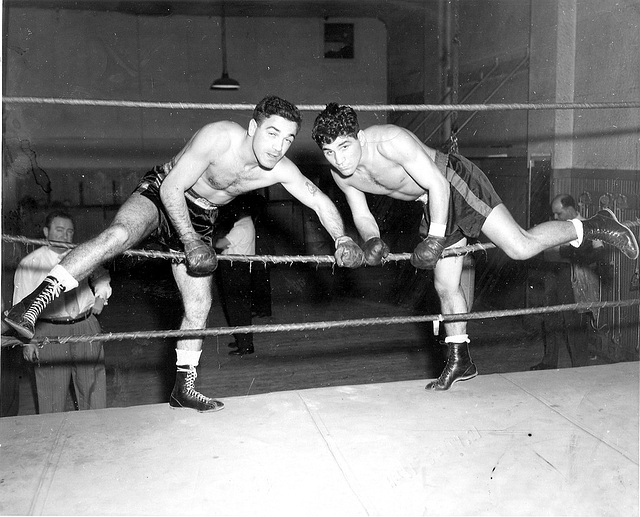
Welcome back to our series on male status. This series aims to help men understand the way status affects our behavior, and even physiology, so we can mitigate its ill effects, harness its positive ones, and generally get a handle on how best to manage its place in our lives.
On Monday, we will lay out a nuts and bolts guide to managing one’s status in the modern age. But before we deliver that little tome, we felt it important to offer a preface to that piece in which we discuss why exactly it’s important to learn about and understand the subject in the first place. For a common response as to how to deal with status is simply to say, “Just stop caring about it altogether.”
Is this a viable option?
It’s certainly the case that because status has (erroneously) been conflated only with wealth and material possessions in the modern day, status and status-seeking have become almost dirty words. Caring about your status seems like something only vain, superficial, consumeristic, crowd-following, conformist types would do. As the thinking goes, independent, individualistic, iconoclastic men — “real” men — simply decide not to care about status at all. Men should go rogue and be completely indifferent to their position in the world and what anyone else thinks of them.
Yet this idea, however satisfying it feels to proclaim, is disingenuous, wrong-headed, and ultimately unworkable on several levels. Here’s why everyone should care about their status:
You’re hardwired to care about status. For thousands of years, a man’s status was closely connected to his access to resources, and thus to his very survival. Even though our status isn’t directly related to our staying alive anymore, our concern about our position relative to others remains hardwired. While the status drive may not be as strong a pull as that towards things like food and sex, it’s of the same kind. Thus, deciding you’re going to simply not care about status and that it’s not important and/or doesn’t even exist, is like deciding you’re going to completely ignore your sexuality.
Status gains and losses result in very real physiological effects that, while they can be quelled using your capacity for higher thinking, cannot be entirely extinguished. A refusal to acknowledge these feelings, an inability to recognize them for what they are, and a failure to proactively manage them, can result in psychological stress, anxiety, and malaise greater than that of just dealing with status directly and maturely. Just as you have to recognize yourself as a sexual being, you’ve got to acknowledge that you’re a status-seeking creature. From there you can take your feelings — whether sexual or status-related — and manage them in an intentional and healthy way.
Status is crucial for mental and physical health. Status gains increase feel-good hormones and neurotransmitters like testosterone, serotonin, and dopamine, making us feel on top of the world.
Status defeats, on the other hand, elevate one’s stress hormones and suppress cognition, the immune system, and even fertility.
Prolonged periods of feeling like you’re low status can thus lead to illness and depression. If your serotonin remains diminished for a long enough time, you’ll also become angry and may even feel the urge to violently lash out at others.
Feeling recognized and valued by other people is thus hardly a vain desire, but truly essential to both your mental and physical health.
Men have cared about status for thousands of years. When people say real men don’t care what anyone else thinks of them, they often think they’re reciting some kind of eternal maxim of manliness. Yet they are unwittingly parroting an idea that only emerged in force with the counterculture movement 50 years ago. For the hippies, being indifferent to the opinions of others was less a call to be a groundbreaking iconoclast, than an excuse for narcissism and self-indulgence — permission to throw out the old rules of morality and do whatever one wanted without shame. Indifference to status thus resulted in the dismantling of traditional values — many of which, ironically enough, those who proclaim that “real men don’t care what anyone else thinks about them” often believe in.
For thousands of years up until this very recent blip in history, men very much cared about what (certain) people thought of them, and everything about the essential nature of manhood grew out of that concern for winning honor.
Not caring about what your equals think of you is a recipe for narcissism and mediocrity; when you’re the sole judge of yourself, you tend to be quite lenient and flattering in your assessment. Listening to the feedback of those you respect keeps you honest, accountable, and motivated to strive higher and do better. Iron sharpens iron.
When people say they don’t care about status, what they’re usually saying is that the value or behavior someone else deems important, isn’t important to them personally. And it’s fine to feel that someone else’s weighing scale doesn’t apply to you — some people have some terrible metrics for what makes someone high or low status. But that’s a different argument than saying a “real man doesn’t care what anyone else thinks of him.” A man shouldn’t care what everyone thinks, but he should care about the opinions of those he respects.
Status = competition, and competition breeds excellence. Status is really just another word for competition, and competition pushes us to be our best. Certainly, status competitions have the potential for turning into pointless pissing contests, but they also lead to real accomplishments and progress. The Space Race was nothing more than a status contest between the US and the USSR, and it put a man on the moon.
In theory, it’s easy to think that you should ideally compete only against yourself — striving to be the very best you. But studies have shown that people simply can’t push themselves as hard when trying to beat themselves, as they can when they’re competing against someone else; an external competitor helps you find another gear.
Status = value. It’s true that people can gain status from things that are merely superficial, like a perfectly symmetrical face, or buying a Beamer. But a lot of the things that confer status grow out of qualities and actions that offer real value to others. A sense of humor, a creative mind, the ability to give just the right advice or explain things clearly, and a reputation for integrity and courage can confer status in many circles. Skill in fixing things, making music, and inventing innovative products brings status too. When people say they don’t care about status, they’re saying they don’t care if they enhance the lives of friends, family, and their community — something every man should be striving to do.
Status attracts people. Just as you have an ingrained desire to seek status, others do too, and part of that drive is to connect with high status people. Remember, status isn’t just about looks or wealth, so this isn’t a purely superficial attraction. Men and women alike want to befriend and partner with a guy who brings all kinds of valuable things to the table, whether that’s intelligence, wit, loyalty, or skill; everyone wants high status people on their team. Thus, cultivating status makes it much easier to make friends, find romantic partners, and build a rich social network.
Status leads to greater power and influence. Because high status individuals attract people and attention and have a large social network, they’re in a position to be much more persuasive and influential than low status individuals. They often get put in leadership positions as well, widening their sphere of influence even further.
With influence and position comes power, and while modern people, especially men, have been bred to feel ashamed of wanting power, it’s something one should be unafraid to earnestly and unabashedly seek. Not only does power feel awesome (really, it’s okay to admit this), it’s how you get in a position to change things in the world and alter the course of human events. Yes, power allows people to change things for the worse, but it also provides the opportunity to transform things for the better.
The thing about people who claim not to care about status is that they almost invariably live small, narrow, circumscribed lives. They don’t make many incursions into the wider world, and thus don’t get much feedback — negative or positive — from other people. In turn, they don’t much influence anyone else either. Indeed, those who profess indifference to status often come into this stance after trying and failing to achieve status themselves. To soothe the cognitive dissonance they feel in falling short, they decide that status isn’t important anyway, and they really don’t care about not having it. By feeling like they’re “above” status, they also excuse themselves from any further attempts to make something of themselves — thus avoiding the risk of future failures.
But while it’s easy to be indifferent to status when you’re not “in the arena” – anyone who wants to make a mark on the world will have to be tuned into status, understanding how to increase it, use it to their advantage, and manage its defeats.
Heck, Even Thoreau Cared About His Status
Alright, you’ve likely noticed some common threads here:
- There’s nothing bad or good about the status drive itself — it’s all in how we direct it.
- Status doesn’t have to be based on “superficial” things like looks, wealth, or consumer goods, and can be connected to anything of value, including positive and virtuous character traits.
- You don’t have to care about everything that anyone’s ever considered status-conferring; you can seek status only in the things that you personally think have inherent value.
When people think of famous iconoclasts as being indifferent to status, what they’re usually thinking of is their indifference to many of the mainstream standards of status. But history’s creative rebels invariably did care about it — just in different forms. They got status from being dissident, from being followed by like-minded fans (even if few in number), by being recognized for their unique contributions to the world, and through seeing others adopt their philosophy or message.
Take one of the most famous nonconformists of all time: Henry David Thoreau. Thoreau didn’t care about getting status from wealth, dressing well, having a professional job, or even moving out of his parents’ attic. Yet as English professor Steven Fink points out, Thoreau’s “principles of self-reliance, however genuine, were always qualified by his literary ambitions: as a public writer and as a moral reformer Thoreau simply could not afford to ignore the public; on the contrary, he was anxious to engage in a relationship with American society and elicit some response from it.”
The status Thoreau wanted was not of the material or mainstream variety, but that of a writer, philosopher, and kind of prophet, and he couldn’t achieve this status unless people actually read his works and listened to his lectures. He had to try to carefully walk the line between remaining true to his principles, and getting people’s interest and attention. He could become disheartened when his books failed to sell, both because of what it seemed to say about his writing, and because it meant so few would be exposed to his philosophy. As Fink writes, “his protestations to the contrary, he was hardly indifferent to the public’s response to his work.”
Thoreau not only cared what his fellow citizens thought of his writing and philosophy, he also cared what his fellow transcendentalists thought of it, especially his friend and mentor Ralph Waldo Emerson. A compliment from Emerson would send Thoreau’s spirits soaring, while a criticism from him smarted, and could make Thoreau angry and defensive.
That part of Thoreau cared both for how the public received his work, and for what his fellow transcendentalists thought of him, ultimately improved both his thinking and his writing. Thoreau’s (usually) friendly intellectual competition with Emerson pushed him to develop his own distinct philosophy apart from his mentor. And while Thoreau did ultimately shape his works in ways that were designed to better engage his audience and win the recognition he craved, in so doing, he actually improved his output. When writing purely to please himself, staking out only the “ground between god and conscience,” he could afford to be more expressive and less pragmatic, more obtuse and less illuminating. But striving for a greater audience and to make his ideas just a little more accessible, forced him to refine their clarity, even for himself.
Most importantly, it allowed him to share his private vision with the public. He wanted to be “useful” to others — asking himself, “If I could help infuse some life and heart to society — should I not do a service?” Thoreau felt he was “reserved for a high destiny” and had a special purpose, and if he at times adopted a slightly more social stance, it was because he saw that he otherwise could not fulfill that mission. To remain entirely aloof and isolated from the needs and opinions of society would prevent him from knowing how to offer value to others. The applause of the public served not merely as an ego boost, but as proof his message had found purchase.
This is not to say that balancing being true to himself and making concessions to status was ever an easy line for Thoreau to walk.
At times he would severely recommit himself to being totally indifferent to the opinions of others, writing in his journal: “Those authors are successful who do not write down to others, but make their own taste and judgment their audience…It is enough if I please myself with writing — I am then sure of an audience.” Yet this retreat from society, from a need for externally-conferred status, often simply made Thoreau feel “low and groveling.” Indeed, just the day after penning his journal entry declaring himself the sole arbiter of his own work, he seemed to change course, deciding, “I should not be so cheap to myself if I see that another values me.” The following day he added: “I have no private good — unless it be my peculiar ability to serve the public — this is the only individual property.”
Thoreau would often write in his journal about how his own opinion of his work was the only one that mattered, and of wanting to completely retreat from society, at the very same time he was submitting his works for public scrutiny. As Fink observes: “his contemplated withdrawal seems not so much a result of indifference to the world as a result of his ambitions and his consequent fears of public failure.” In other words, he tried to preemptively quell his sensitivity about status, so that a potential status defeat wouldn’t sting.
Thoreau went through his whole life like that — sometimes announcing and recommitting himself to being indifferent to the opinions of the crowd, and other times wishing for and actively seeking a greater audience for his work. It would be easy to criticize the philosopher’s “hypocrisy” in this as some have done — to criticize his failure to consistently be wholly aloof from what others thought of him as a writer and prophet of nonconformity.
Yet Thoreau’s struggle to balance being true to himself with wanting to be recognized and bring value to the world, is the very same struggle each of us face. And we can take comfort in the fact that such an iconoclast never totally mastered that balance!
We won’t either; it’s something you have to grapple with your whole life through. All we can try to do is figure out which status markers to care about, which to disregard, and how to keep our focus on the former, and away from the latter.
A guidebook to shaping this perspective, on Monday.
Read the Entire Series
Men & Status: An Introduction
Your Brain on Status
How Testosterone Fuels the Drive For Status
The Biological Evolution of Status
The Cultural Evolution of Status
The Rise and Fall of Rebel Cool
A Cause Without Rebels — Millennials and the Changing Meaning of Cool
The Pitfalls of Our Modern Status System
Why You Should Care About Your Status
A Guidebook for Managing Status in the Modern Day







